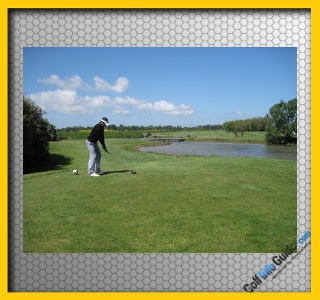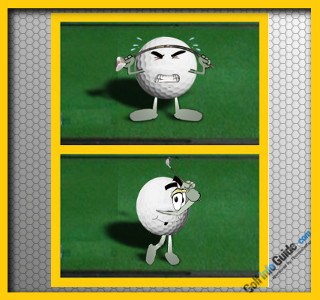- What is the fastest way to save strokes? Without a doubt, the fastest way to make improvements in your golf game is to work on your short game. By working on your putting and chipping, you should be able to take strokes off your average score, even without making any changes to your full swing. Most golfers think about making swing changes when they want to save strokes, but it’s actually best to address your short game first. Sure, you can make progress over the long run by improving your swing, but the short game can provide you with immediate satisfaction. So, if you are trying to get ready for an upcoming tournament and only have a week or two to prepare, focus mostly on your short game during practice sessions.
- How do professional golfers consistently shoot such good scores? The obvious answer here is to say that professional golfers have excellent swings, quality short games, and plenty of experience. While all of those things are true, it is also true that professional golfers tend to make smart course management decisions as they play. This is where amateur players can learn from the pros. One habit you can learn from the pros is to avoid penalty shots at all costs, even if it means laying up or playing to the wide side of the green, away from the hole. It’s hard to recover from having to add a few penalty strokes to your scorecard, so learn how to plan your game around avoiding hazards and you’ll be a better player for the effort.
- Is distance or accuracy more important for low scores? This is an easy one – when trying to shoot the lowest score possible, it is much more important to be accurate than it is to hit the ball as far as you can. Yes, distance can be helpful, but it is not as valuable to the task of shooting a low score as control and accuracy. Golf is a target game first and foremost, so you should always prioritize hitting accurate shots. If you can teach yourself to make controlled shots your top priority, it is almost certain that your scores will come down.
- How can I avoid making big numbers? One of the fastest ways to ruin a good score is to make a ‘big number’ on a single hole – something like a triple bogey, or even worse. Of course, one of the steps toward avoiding big numbers is to keep your ball out of the hazards, as mentioned earlier. There are other things you can do as well, however, to give yourself the best chance to avoid this fate on any hole in your next round. Perhaps the most important thing you can do is to maintain your patience and keep your temper in check. If you hit a bad shot, you need to take a moment to calm yourself down from the frustration that likely arose after that mistake. By staying patient and not letting yourself get too angry, you should be able to perform well on your next swing. On the other hand, if your temper rises and you start to rush through the hole, you’ll be more likely to keep hitting bad shots. Don’t let this happen. Each shot is just one individual stroke in the grand scheme of your full round, so avoid letting one bad shot influence the next. This will get easier as you gain experience, and you should find that you have more success staying away from the dreaded big number.
There is more to golf than shooting low scores, as it is possible to have fun on the course no matter how you perform. With that said, most golfers are competitive people, and you probably would count yourself in that category. If you are motivated to shoot lower and lower scores as you move forward in this game, we hope you will find the questions and answers below to be useful.




It is quite satisfying to walk off the 18th green with one of your best-ever scores – or even a new personal record. Those accomplishments don’t come easy in this game, however, so you should expect to put in plenty of work on the practice range before lower scores will come your way. Consider the answers to the questions above as you are thinking of ways to bring your scores down.





